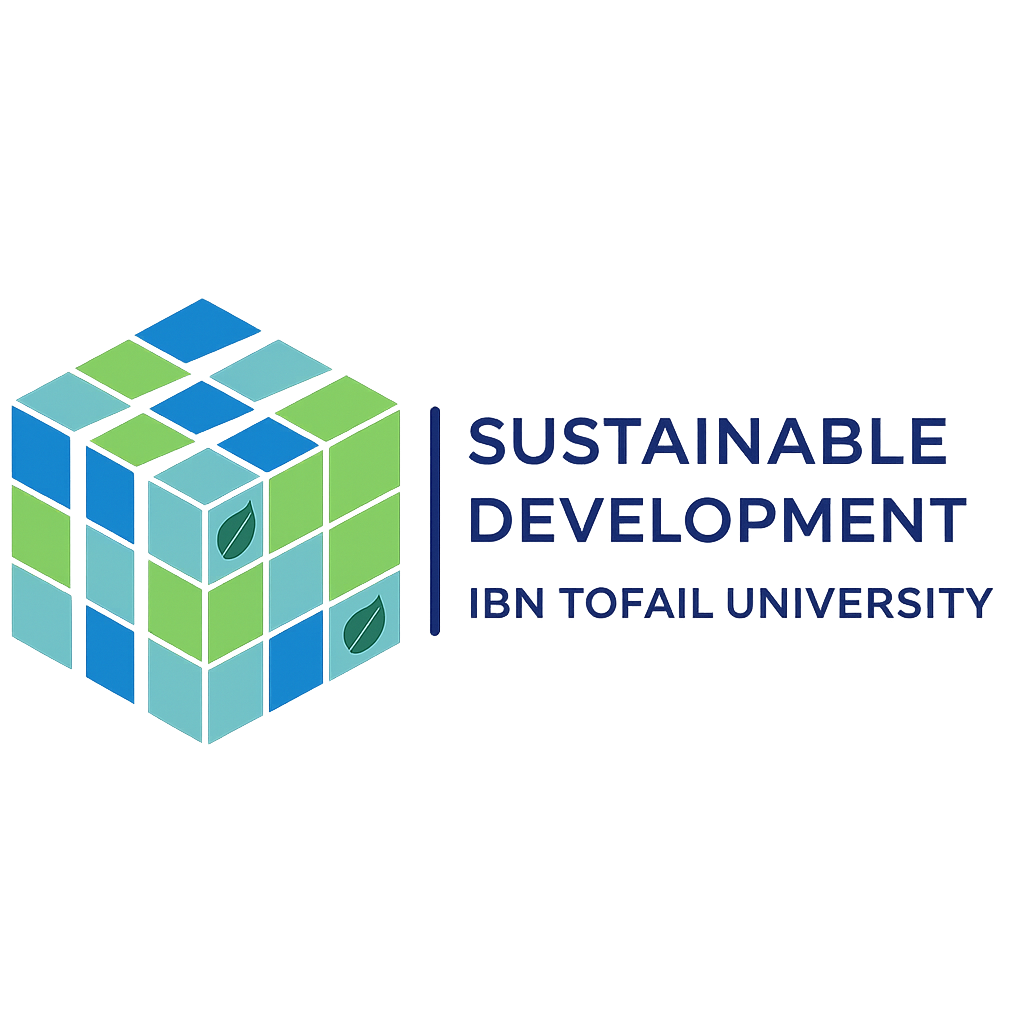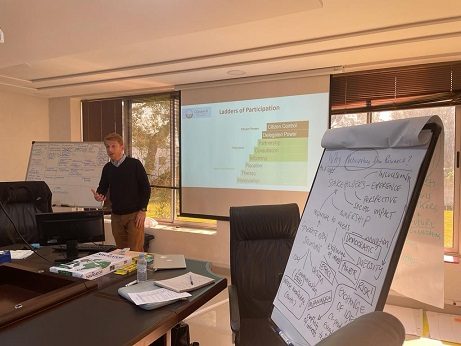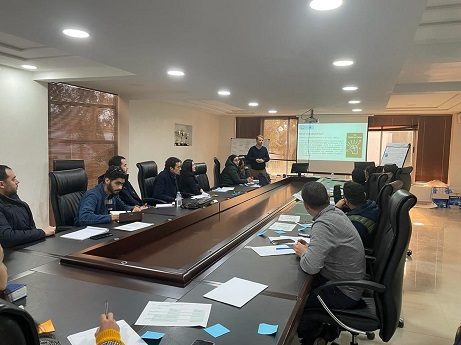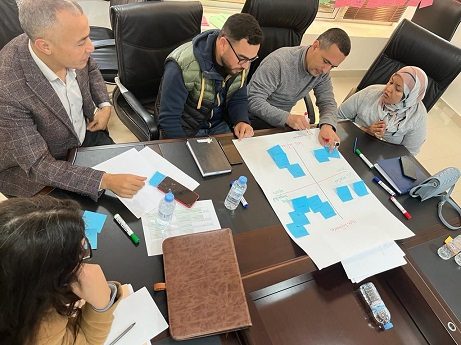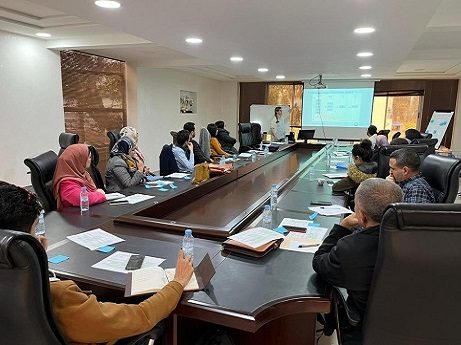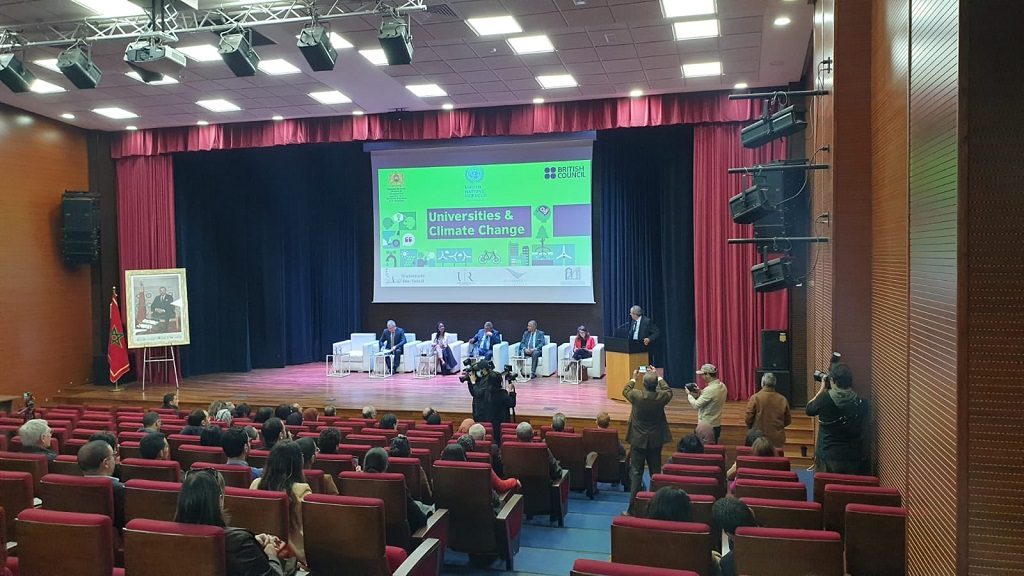
In the framework of the project ‘Building Capacity for Participatory Action Research on Climate Change in Morocco’ funded by the British Council, Ibn Tofail University, in collaboration with University College London and the International Institute for Environment and Development, organized a workshop from the 14th to the 17th of March 2022, under the theme: “Knowledge Exchange Between UK & Morocco: Universities, PAR & Climate Justice.”
With an overarching emphasis on the imperative need for sustainable action, the workshops delved into multifaceted discussions on participatory action research (PAR) methodologies, collaborative educational strategies, and community-centered approaches to address the challenges posed by climate change. Through a series of interactive sessions and collaborative activities, it sought to cultivate a deep understanding of the interconnected nature of environmental and developmental issues.
The outreach activities associated with this project were designed to extend the benefits of this knowledge exchange beyond the immediate participants, reaching a broader audience both within academic circles and the wider community in the region. By fostering partnerships and creating avenues for the dissemination of information, the workshop aimed to empower local communities and stakeholders, fostering a sense of ownership and involvement in addressing pertinent climate challenges.
Through the integration of executive education programs, the initiative underscores a commitment to providing accessible and relevant educational opportunities for professionals both within and outside the academic sphere, thereby fostering the acquisition of knowledge and skills necessary to address pressing global challenges, particularly those related to climate change and environmental sustainability.
Moreover, by incorporating the principles of participatory action research (PAR) and community engagement, the workshop fosters a participatory learning environment, emphasizing the importance of collaborative problem-solving and inclusive educational practices. This approach directly supports SDG 4’s objective to promote inclusive and holistic learning experiences that empower individuals to become active agents of change in their communities and beyond.
